#this and the homer one
Text
"I play the kind of punk rock music that has existed since the time of the great painters in the caves at Lascaux" - John Darnielle
#i think about this quote at least once daily#this and the homer one#it posts#john darnielle#the mountain goats#tmg
139 notes
·
View notes
Text
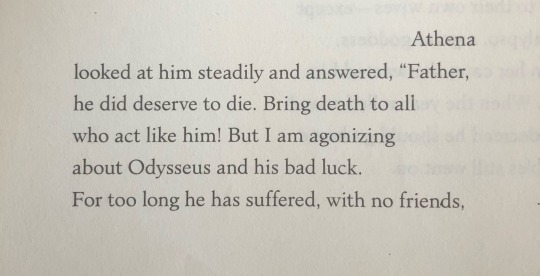
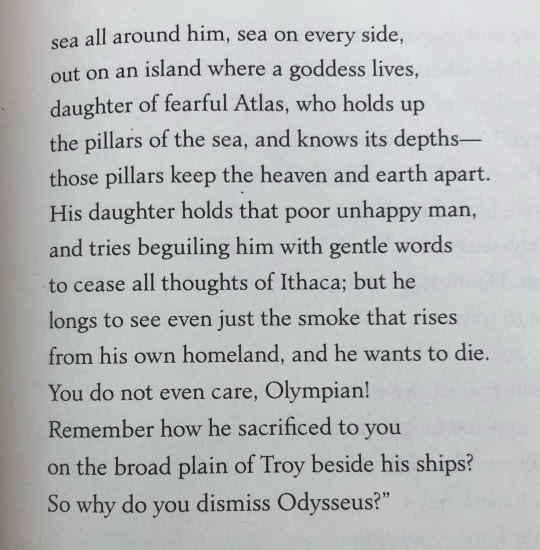
Athena coming to the defence of Odysseus is very important to me.
#I don’t care how pretty and girlboss Circe and calypso were#he didn’t want them#he said no#he wanted his wife#Athena is a real one#Odysseus#the odyssey#Emily Wilson#Homer
2K notes
·
View notes
Text
Zeus: Hades, man! Come join us in tormenting this Odysseus guy!
Poseidon: Yeah, he's coming to your kingdom next. It's your turn now!
Hades: I don't know, seems a little unethical-
Persephone: *pushes Hades aside* Sounds fun! Can I join?
#zeus#poseidon#hades#persephone#hades and persephone#odysseus#the odyssey#homer's odyssey#epic the musical#epic the underworld saga#the underworld#greek mythology#incorrect greek mythology quote#incorrect greek mythology#incorrect greek gods#Persephone releasing the souls of Odysseus' loved ones to fuck with him is a metal move#girl is following her father and uncle's footstep for some giggles
420 notes
·
View notes
Text
youtube
a little reunion animatic
#art#animatic#tagamemnon#the odyssey#odyssey#odysseus#penelope#greek mythology#epic iii#hadestown#so I skipped some steps haha#with the whole her tricking him thing#this is fully inspired by that one passed in the Odysseys where Penelope runs down to meet Odysseus (though not at the bed) and finds him s#eyes on the ground#waiting for her to react#which.#devastating thanks homer#also a funny visual#but mostly heartbreaking#Youtube
819 notes
·
View notes
Text
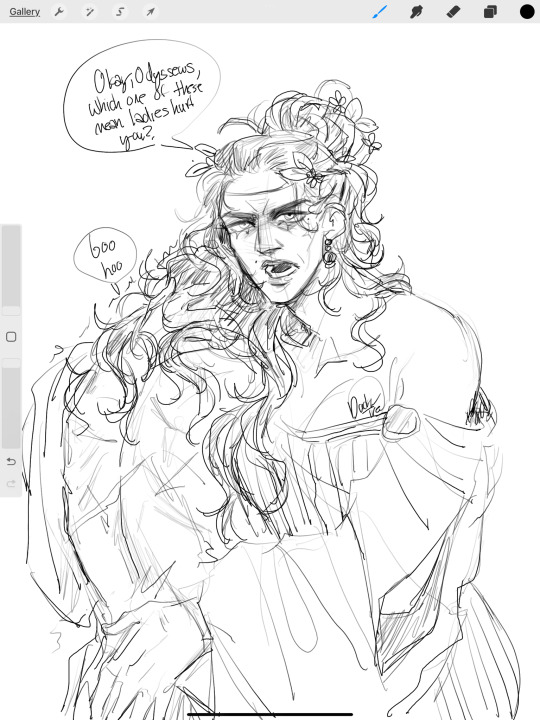
calypso run
that is her sad wet cat of a husband and she will not tolerate bullying
#this one’s just for silliness#i mean what happened wasn’t silly but this sketch is silliness#Odysseus#penelope#the odyssey#the illiad#calypso#circe#homer#greek mythology#art#fanart#comic#duckytree
1K notes
·
View notes
Text
Isn't it freaking adorable how both Odysseus and Penelope could remember down to exact detail what clothing she had packed for Odysseus before he left for war even 20 years later?!
😭😭😭😭😭😭😭😭😭
And she packed them herself. She didn't use the help of any servant or slave to do it. She wanted to prepare her husband herself. What is even more is that all the clothes were of vibrant colors which had me thinking;
What if Penelope deliberately prepared vibrant colored clothes for Odysseus solely so that she could see him from afar for as long as possible?! And man I can so imagine her doing the same! Like standing on the top of the hill where the palace is, wearing a vibrant dress that floats in the wind, holding baby Telemachus in her arms and watch Odysseus's bright tunic on the ship and Odysseus turning his head to look up at that aetherial figure on the hill almost leaning over the ship to see her JUST FOR A LITTLE LONGER until he cannot see her anymore and this is where he keeps looking at his island becoming smaller and smaller to the horizon, shedding tears of goodbye
🥺🥺🥺🥺🥺🥺🥺🥺🥺🥺🥺🥺🥺🥺
Man ninjas are cutting onions around me again!!!
#greek mythology#odysseus#the odyssey#greek myth#odyssey#the iliad#iliad#odypen#odysseus and penelope#the odyssey 1997#trojan war#ithaca#telemachus#tears of goodbye#war#odysseus leaving ithaca is probably one of the saddest moments in greek mythology#odysseus the sailor#odysseus the master mariner#penelope won't see her husband's face for another 2 decades#sad separation#separation#odysseus and penelope make the world go round#tagamemnon#odysseus father of telemachus#homeric poems#homecoming odysseus#homeric epics#homer
284 notes
·
View notes
Text
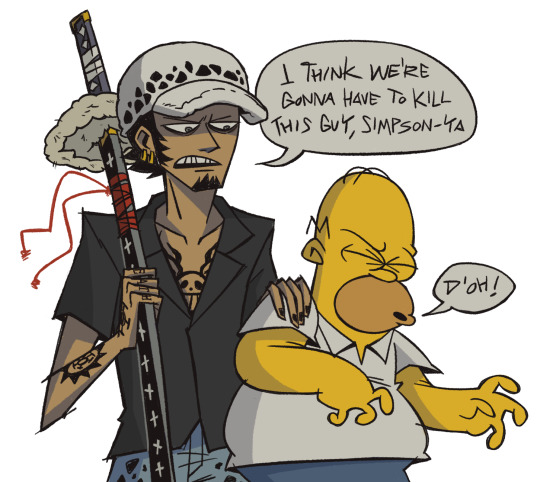
well this was therapeutic
358 notes
·
View notes
Text



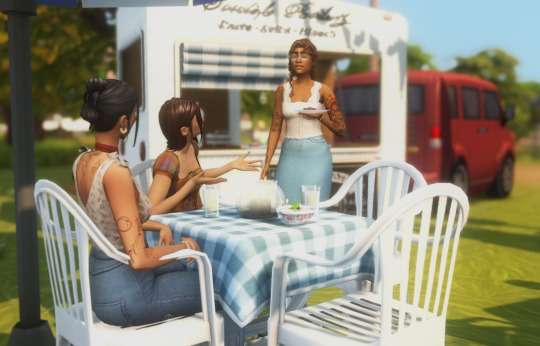




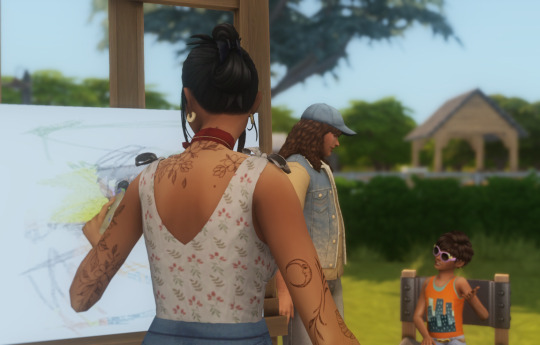

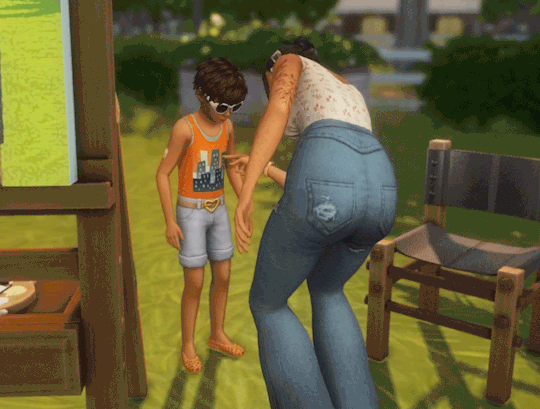

market day: 02, the final day!
the kamealoha siblings enjoy mae's sweet berry waffles and lemonade on the final day of the weekend market. they also partake in some chestnut ridge gossip with a local named devin
karlee does a few more portraits before the day is done, including one for an older brother and a cheeky little sister (karlee thinks they're both very puppy-like and can't help but to tease libby)
mae by @pearlean
devin by @maelfe
jack & libby by @squea

karlee getting the adoring sentiment the very first time she talks to jack,,, no i get it he's so puppy
#gif#ts4#ts4 gameplay#sims 4 gameplay#postcard legacy challenge#postcard: gen4#jack and libby my babies#the second i saw libby spawn in w her funky glasses i knew i needed to have karlee paint her#while karlee was painting libby's portrait jack awkwardly made a joke and got so embarrassed he left 😭 this game just plays itself#not beating the loser allegations <3#OH RIGHT i updated karlee's tattoos.... retconned the old ones dont mind it#dont look at the lights going through mae's head either 🫵🏽 before i come to your house and throttle you bart/homer simpson style#sim: karlee kamealoha#sim: amaya kamealoha#devin by maelfe
280 notes
·
View notes
Text
i keep thinking about the odyssey i am THINKING about wei wuxian as odysseus. you were dead. its been years since you’ve seen your family. the child you left behind is almost a man. you wear a face they don’t recognise, you sneak in through the back door. the dog gives your identity away. the world knows it’s you when you draw your weapon. the person you love recognises you by the original symbol of your love—a secret that no one else in the world knows about, still, because they kept it safe for all these years. you get the chance to go back and despite everything, you found home waiting for you; he kept your place and raised your son and he was still there waiting for you when you got back. tell me o muse, about a complicated man i am extremely not okay
#cql#mdzs#wangxian#wwx#lwj#meta stuff#greek mythology#i am not fine i am not sane in the slightest#no idea if i’ve posted something similar to this before#i definitely started my odyssey journey thinking about them but then i got sidetracked with. the actual odyssey#i have been on an absolute greek tragedy bender though so there’s. plenty more to come. but also. HHHHH#the dog thing is so silly but i couldn’t help keeping it in because that is SO funny#this is soooo self indulgent i am sorry for subjecting u all to this#thank u to helendamnation my beloved for listening to all my rambling this weekend about this#jesus. home waited. the odyssey is about many things but it is about a man coming home.#and despite everything. he gets to come home. and he gets it because his home waited for him.#despite him being dead. despite the gods. despite the suitors and the pressure and the doubt.#in most stories home moves on without you but this time. this one time. home waited.#homeric hyperfixation haze
2K notes
·
View notes
Text
epic poem smackdown! tell me which epic is your favorite (and why! if you feel so inclined). apologies in advance to everyone whose favorite i left off but unfortunately tumblr is stifling my power with this ten option limit
#also if you pick homer tell me which one in the tags!#i didn't feel justified giving him two spots lmao#but i know people have strong iliad vs. odyssey feelings#have not read all of these btw but god i want to#tagamemnon#the iliad#the odyssey#the epic of gilgamesh#beowulf#tain bo cuailnge#the aeneid#mahabharata#ramayana#shahnameh#the divine comedy#classics#epic poetry
2K notes
·
View notes
Text


532 notes
·
View notes
Text

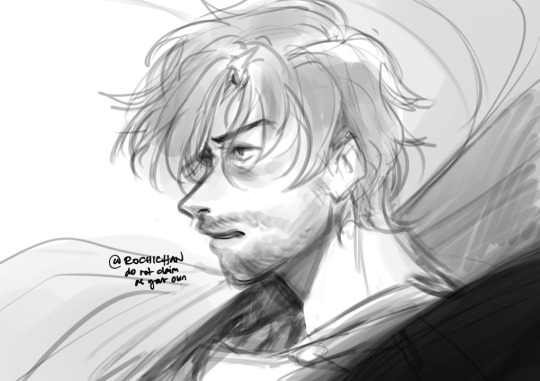
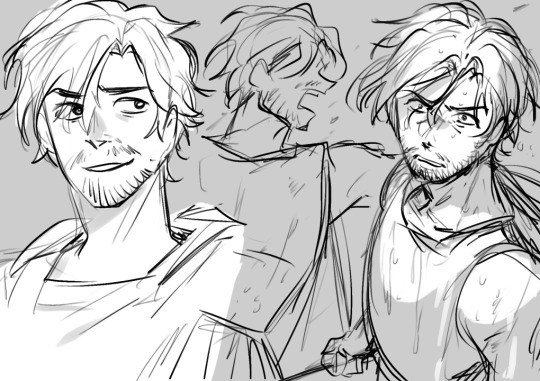
ocean saga came out so now i have to remember how i drew odysseus TT
#fanart#epic the musical#the odyssey#homer#MORE ANIME ANIMATICS COMING UR WAY#jk i think just like a short i dont have the energy to do a full one
176 notes
·
View notes
Text




#I’m on a level of sucker where I have this comic saved for when I need to cry#The Simpsons#Maggie Simpson#James Bates#Mark Ervin#Bongo Comics#comics#art#Argue all you want about whether Homer or Bart is the main character of The Simpsons but Maggie is the main character of the Simpsons comic#I swear every time I read one of these they have some serviceable stories about the others and then some kind of all-timer featuring Maggie
215 notes
·
View notes
Text
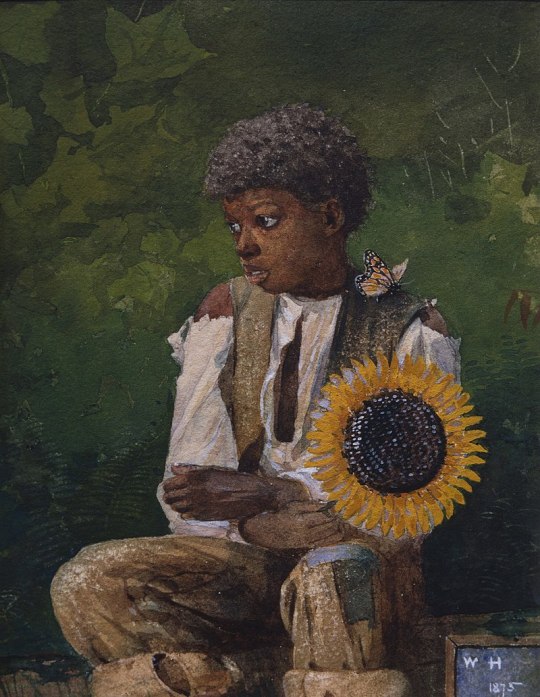
Winslow Homer, Taking Sunflower to Teacher (1875)
307 notes
·
View notes
Text




@asiandramanet ☾⋆ december bingo ☾⋆ black & white
"Any moment might be out last. Everything is more beautiful because we're doomed. You will never be lovelier than you are now. We we never be here again" - Homer, The Illiad
#welp I got the quote wrong by one word sorry homer#tantai jin#ye xiwu#till the end of the moon#tteotm#tteotmedit#asiandramanet#asiandramasource#tw blood#cdramaedit#cdrama#userxlh#uservivs#lextag#userfra#userkimchi#usergooseras#yilinglaozu#<3#weiwuz#weiwuzedits#idk how to get rid of the lines sooo I didnt
107 notes
·
View notes
Text
many thoughts about epic: the musical...
i am once again in the middle of essay writing but plautus is boring and my friend introduced me to this album so u already know I binged the entire thing
(quick warning for spoilers of homer's odyssey? if that's necessary?? man idk whatever)
first thoughts naturally concerned odysseus. i have hated this man with a burning passion ever since I started studying classics - i think he is irredeemably selfish, a liar masquerading as a 'resourceful hero,' and basically just a twat all around. that being said, i respect that epic is not an exact replica. in fact, i like that about it!
readings of odysseus as a loving husband and father, and a man who cares deeply for his crew and fellow warriors is one i would love to see reflected in the source text (though i admit i have only read two different translations so far, so this is subject to change depending on translators choice!), if only because it would be so so refreshing. and epic does that extremely well! i find epic's odysseus to be far more likeable, insofar as he is fueled not by greed for glory (kleos for the nerds out there) but rather the desire to return to his wife and son. (I personally would argue that, while homer's odysseus is indeed fueled by a desire for homecoming (nostos), it is not for the sake of penelope and telemachus, but rather concern over the security of his status and position within the household (oikos))
i also very much enjoy that the love he holds for his family is not an inherently positive trait. in the aeneid, and often in myth, it is achilles' son, neoptolemus/pyrrhus who kills the son of hector and andromache, astyanax by throwing him from the walls of troy - less common, it is odysseus (which i did not know until i googled it just now oops). homer's odysseus does not reject the gods. he is beloved by some, hated by others - he receives their boons and curses as they come. he revels in the attention of the divine, no matter positive or negative, for it is proof of his kleos. epic's odysseus is so much more... human. he doesn't vie for glory that reaches the skies. if anything, he rues it. in the horse and the infant he supplicates himself to (who i assume is) zeus - which is such a loaded act i am genuinely struggling to think of how to articulate it, but boy am I gonna try my darndest.
the act of supplication and guest-friendship (xenia) is a very key theme within the odyssey, and to a point in the iliad also - essentially, if a traveller were to arrive at your doorstep, you were obliged to let them in and provide food, drink, and lodgings to that traveller, no questions asked. in return (because reciprocity is VERY important in homer especially), the guest would provide entertainment, tales of their travels, etc, and would be respectful of their host. the patron of these travellers was zeus. any violation of these terms, on part of the guest or host, would be met with divine scorn. for odysseus to supplicate himself to zeus is therefore meta as hell, but I would instead bring attention to the echoing lyric "hes bringing you down to your knees." 'he,' assumedly, is astyanax. his father, hector, is dead; as is his grandfather, priam, and all of priam's other sons. at this point, one could assume that it is astyanax who is ruling troy, who is now the host of the city that odysseus, a traveller from another land, has entered and ransacked. zeus' 'prophecy' of astyanax growing old and seeking revenge (reciprocity! homeric greece had a 'revenge culture' - essentially 'an eye for an eye' as well as 'you scratch my back, I'll scratch yours,' though not always so clear-cut), therefore, would be odysseus' punishment for violating the terms of xenia.
supplication, however, is not limited to guest-friendship alone. for example, in odyssey 22, when odysseus slaughters the suitors occupying his home (is that spoilers?), their priest leodes supplicates himself at odysseus' feet, begging to be spared. odysseus takes his head from his neck in an instant. odysseus' kneeling before astyanax, therefore, is no simple act between a guest and his host - perhaps he is begging the infant for mercy, for forgiveness, or perhaps he is positioning himself for punishment; in killing astyanax, odysseus accepts his own death. perhaps this means his fate (which, in case of homeric epic, refers to the time and manner of one's death), or perhaps it is a part of him that has died. in just a man, odysseus asks "when does a man become a monster?" his killing astyanax prevents the boy from ever becoming a man, and spares him from a life fueled only by revenge and the need to regain his glorious birthright, and it turns him into a monster. just as he says he would, he trades in the world where he is 'just a man' for a world where he is a cruel beast, all for sake of his family.
(quick detour but i really like how odysseus' focus is primarily on penelope rather than telemachus. [insert deadbeat dad joke here], but in reality, he doesn't even know the boy. penelope he chose to marry and fall in love with - it's no question that he loves telemachus, but after ten years, it is only natural that he would miss his beautiful, tricky wife with more fervour than the child he never had the chance to love. it shows he is imperfect, even illogical - the son is the father's entire legacy. just as odysseus is 'son of laertes', so will telemachus be 'son of odysseus', the protector of his immortal heroic legacy. yet it is penelope whom odysseus yearns for.)
(another detour but "i'm just a man" is such a juicy lyric, because the entire message of homer's odyssey is that odysseus is not any man - he is a man that the muses deem worthy to inspire great poets to compose epic poems that persist through thousands of years and a million different voices - a hero. but epic's odysseus is not that hero. he is a man, trying to go home, craving comfort and the warmth of the hearth. these 'flaws' humanise him more than homer's odysseus could ever imagine.)
skipping over to polyphemus, odysseus violates xenia once again by killing polyphemus' sheep, albeit unwittingly. homer makes this violation very obvious - odysseus and crew eat polyphemus' cheese and wine while polyphemus tends to his sheep, knowing that the cave is obviously inhabited, and they even wait for polyphemus to return to ask for more. it is worth noting as well that, at this point, odysseus and crew are still jubilant about their victory, and unlike in epic, these 'detours' are purposeful, specifically so that odysseus can scope out the islands for anything of interest he can snatch and add to his spoils of war, adding to his kleos by means of physical wealth (timē) - which makes odysseus' offer of treasure to appease polyphemus all the more baffling in epic. this odysseus is a leader who prioritises the lives of his men over his own kleos, which makes the final lines - "you shall be the final man to die" // "what?" // "watch out!" - all the more heartbreaking. he wants to protect his men, so that they too may return to their families back on ithaca; the prospect of watching them die before his eyes after he already witnessed so many lose their lives in battle must be so utterly terrifying.
polyphemus is so excellently creepy as well! i loved him in the odyssey - this was where I really started to dislike odysseus, actually. he's a cyclops, obviously inhuman, yet he rears sheep and makes cheese and wine and weaves wicker baskets to keep them in, trying to play at humanity. i really did sympathise with him from the first time I read it. epic's polyphemus is similar, so very calm in his anger yet ruthless all the same, and demonstrates great restraint in comparison to his counterpart in the odyssey, who gets filthy drunk after mashing six men dead and allows odysseus+co. to fashion a stake with which to blind him. much of the violence against polyphemus, as well as the violation of xenia in homer's odyssey is 'excused' by the fact that polyphemus is a 'barbarian', to whom concepts of civilised people do not belong.
(very quick detour but polyphemus' first admonishment of odysseus - "you killed my sheep" up to "take from you like you took from me" - makes such heartbreaking parallels to astyanax's murder and the sack of troy. it almost provides a visualisation of the guilt that odysseus must still be battling. i would have loved to have been in his brain when he heard polyphemus say that.)
the mercy odysseus shows polyphemus is particularly interesting - homer's odysseus leaves him alive and tells him his name purely so that his name will spread and his kleos will grow. but epic's odysseus, despite his conviction to kill in survive and to avenge is fallen comrades in remember them, spares him. in part, this is to assure them an escape, so that the cyclops' giant body does not block their exit - but athena's interruption makes clear that this is not all. she criticises him, remarks "he is still a threat until he's dead." no doubt this calls back to zeus' warnings about astyanax, hence his refusal (or inability?) to commit to slaughter. for a homeric greek hero to allow a foe to live on after his allies had been slaughtered is a grave failure of reciprocity, casting shame on both the hero and their enemy. homer's odysseus escapes this with his reputation intact, since as a result polyphemus curses him to face poseidon's wrath - as I mentioned, for a hero, even negative attention from the gods is a good thing as it proves that their reputation/glory is known all over, even in olympus. but, as we have established, epic's odysseus cares not for kleos. the decision to tell polyphemus his name is entirely impulsive and irrational, grieving his comrades, hence athena's outrage.
the relationship between athena and odysseus is founded entirely on the principles they share, described in warrior of the mind (if anyone can lmk whereabouts this song fits in the timeline I will be so grateful, I'm stupid unfortunately :/). they value wisdom, reason, and rationality over brute strength and bloodlust. epic's athena becomes odysseus' patron goddess with the goal to "make a greater tomorrow" and "change the world" - aspirations that are entirely foreign to any homeric god. gods in homer do not care about the wellbeing of humans unless they are directly related to them, and they certainly don't care about the wellness of humanity as a whole. humans are toys and tools of the gods. the amount that athena cares for odysseus, even in the odyssey, is unusual, demonstrative of how much she cares for him, yet epic makes their comradery more obvious, even going as far as to (tentatively) call them friends. my goodbye frames athena's anger as disappointment at an experiment failed - calling back to warrior of the mind, where she claims to have "designed" him - but odysseus' replies to her makes clear that it is far more personal. perhaps, to her, odysseus acting so irrationally is even a betrayal; odysseus is abandoning the principles of reason they both once held and thus is forsaking all that they once shared and that she, as the goddess of wisdom, stands for.
ive always considered athena to be a very interesting goddess. she is a patron of both war, which in homer is only carried out by men, and weaving, the traditional work of women within the household - her very nature is a contradiction of masculine and feminine. although it is ares who is considered the 'black sheep' of the olympians for his brutality in war, epic's portrayal of athena through odysseus' lens paints her as lonely and ostracised - "since you claim you're so much wiser // why's your life spent all alone? // you're alone." It is clear that odysseus here does not view her as his patron at all, rather as a friend - and to that she takes offence, because she is a goddess, eternal and all-powerful. she does not need friendship or comradery; those are mortal concerns alone. personally, I see epic's athena as incredibly insecure. she cuts odysseus off because she cannot bare that a mortal has been able to read her so clearly, to see all the ugly parts of herself that she keeps hidden to retain the facade of the perfect goddess. she knows the paradox within herself - warrior and woman, immortal and alone - and rues that odysseus was able to see it as well. the cruellest part, the most ironic, is that his being able to figure out the true, imperfect nature of a god shows that he has not abandoned the path of the warrior of the mind. in fact, his wisdom extends beyond mortality into the realm of the divine. but athena is blinded by her anger and insecurity, and she says her goodbyes. she disappears from there, only to appear again to try to warn odysseus of his crew opening the bag of winds given to him by aeolus in keep your friends close, once again demonstrating her care for him, despite her anger.
the amount that odysseus cares for his crew is demonstrated time and again throughout the album, yet in the end, he still slowly loses their trust. aeolus' winds are the first sign. his crew betrays his orders upon the first whisper on the wind that he might be keeping treasure from them. the next sign, in puppeteer, is eurylochus' confession upon arrival to aeaea (circe's island), which odysseus brushes off, much as he brushed off eurylochus' concerns in luck runs out. then, in a matter of moments, 600 men are reduced to forty by the wrath of poseidon - which in itself is a significant change. while odysseus in epic is explicitly blamed for failing to kill polyphemus, homer's odysseus takes no responsibility for the deaths of hundreds of his men. it happens when they arrive at telepylos, which, unbeknownst to them, is home to the laestrygonians, a race of cannibalistic giants. odysseus, apparently sensing something off (who tf does he think he is, spiderman?), allows his entire fleet to enter the bay of telepylos while his ship alone remains outside - and when those ships are attacked and trapped, he alone takes his single ship and escapes, allowing twelve ships of men to be ripped apart and eaten by cannibals. an act which he shows no remorse for.
in my interpretation of homer's odyssey, it is this slowly slipping trust that eventually leads to his men ignoring his warnings and feasting on the cows of helios which leads to the deaths of all his remaining crew, including eurylochus and polites (spoilers? idk). so, once epic: the musical catches up to book 12 of the odyssey you WILL be seeing me again I hope ur excited.
there is definitely more i could say here, especially about the circe saga bcs ohhh my god I love circe and I love this circe especially (a female character with actual motive other than being a victim? homer could never) but unfortunately I'm running out of steam and I do in fact have 3 essays due this month (help) so I will probably return to this later !! hopefully its readable bcs I'm not going back to edit any of this ;)
#joined cort's spotify jam while writing this and got rickrolled#the message here is trust no one#skipped my seminar to do work and did this instead#fuck u plautus and your dumb menaechmi#this took like 4 hrs to write i have issues#epic the musical#epic the ocean saga#epic the circe saga#epic the cyclops saga#epic the troy saga#epic#classics#classical studies#homer's iliad#homer's odyssey#the odyssey#odysseus#penelope#media analysis#literary analysis#longpost#homer
81 notes
·
View notes